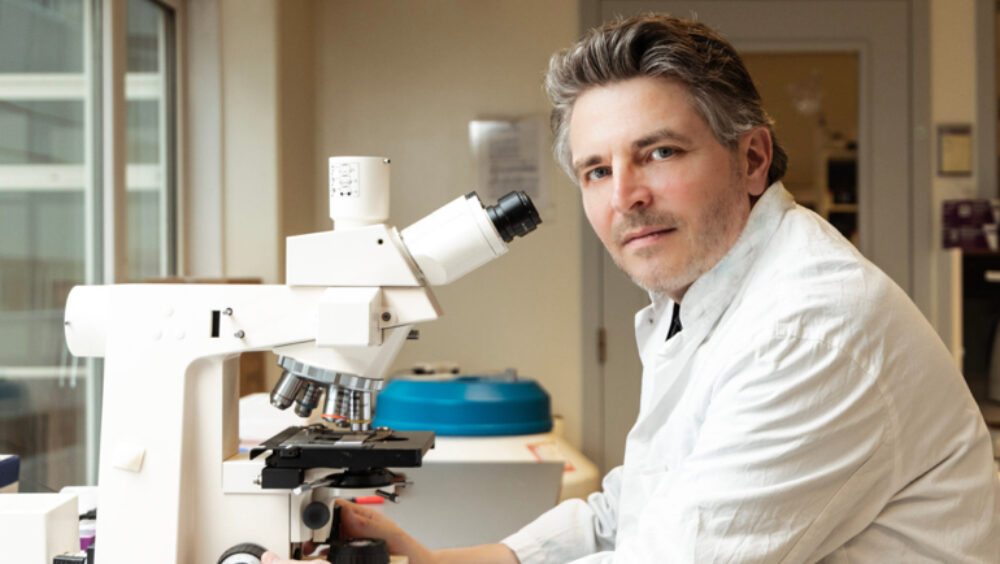Laboratory Research

Vision and ambitions
Our mission is to identify the biological mechanisms that promote cancer progression and resistance to therapy and to use that knowledge for the development of better treatments for cancer patients.
We believe that Radiotherapy combination treatments will prolong survival and preserve quality of life for cancer patients.
Our ambitions are to implement our knowledge of tumor biology to identify meaningful predictive biomarkers and interventions in radiotherapy clinical trials.
Research themes
The scientific research of the department of radiotherapy is led by four PI’s with expertise’s on different cancer hallmarks:
This research is focused on mechanistic insight into signal transduction by NOTCH family proteins and their context-dependent role in stem cells, cancer development and treatment response, with an emphasis on tumor microenvironment and hypoxia and normal tissue effects.
This research is focused on mechanisms of autophagy activation, extracellular vesicle biogenesis and transport and communication between cancer cells and their microenvironment. in the main focus is on hypoxia controlled interconnections.
This research is focused on the identification of new molecular mechanisms of serine/glycine synthesis upregulation in cancer, which allows building a patient stratification framework for cancers that can benefit from serine synthesis inhibiting compounds.
In this research we aim to broadly understand the role of RNA regulation in health and disease. Using cell death and senescence as paradigms, we investigate transcriptional and post-transcriptional gene regulation and the influence they can exert on inflammation, the microenvironment and cell fate. Being able to modulate this response has the potential to improve not only cancer therapy, but also other diseases characterized by increased inflammation as well as aging.



